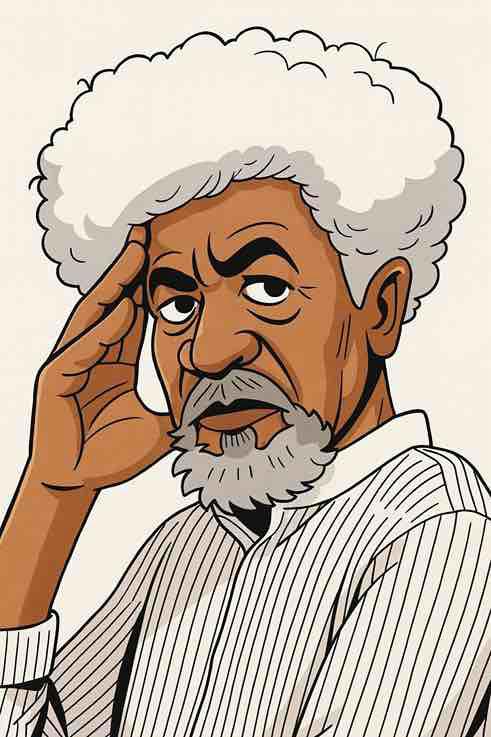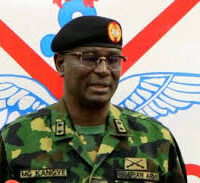Professor Wole Soyinka’s visiting visa to the United States has reportedly been revoked. Around 10–11 September 2025, he publicly disclosed that the U.S. Consulate in Nigeria had invited him for a visa re-interview, an invitation he firmly declined.
In his own words, during a recent media interaction, Professor Soyinka confirmed that he personally spoke with a representative of the U.S. Embassy, who followed up after his initial refusal and urged him to come in for the interview. He stated clearly that he declined the request and made his position known. Following that refusal, the Consulate had no choice but to revoke his visa in accordance with standard diplomatic procedure.
It is also a matter of public record that Professor Soyinka relinquished his U.S. Green Card in 2016, in protest against the election of Donald Trump as President.
According to an official letter from the U.S. Consulate General in Lagos, dated 23 October 2025, his non-immigrant B1/B2 visa was formally revoked following “additional information” that surfaced after its issuance.
Many feel strongly about this, and understandably so. Professor Soyinka is a global icon, the first African to win the Nobel Prize in Literature. His stature naturally attracts attention. But that is not where our strongest feelings should lie.
Our energy should be directed toward building our own nation, not lamenting how another country exercises its sovereignty. Every nation reserves the right to determine who enters its borders and under what conditions. Visa issuance and revocation fall squarely within that prerogative.
If we must feel deeply about anything, it should be about what Nigeria brings to the global table. When another nation acts toward us in a way we dislike, it should provoke national reflection, not foreign criticism. Our anger should translate into resolve, to build a country so strong, functional, and respected that its citizens are treated with dignity everywhere.
International relations are ultimately about mutual respect and value exchange, not dependence. No country plays Father Christmas in the modern world. The question is not who invites us in, but what we contribute when we arrive.
That, however, is the deeper message in this development, a clarion call for introspection. There is no place like home, and no nation we can truly call ours except Nigeria.
No level of achievement, fame, or global recognition grants anyone immunity from another nation’s laws or policies. What this episode underscores is simple: we must build our own nation. Let us build a Nigeria that commands dignity in the community of nations, one so just, so prosperous, and so confident that no citizen feels exiled, whether at home or abroad.
When we build strong institutions, sound leadership, and a united citizenry, it will no longer matter how others choose to treat us. What will matter is how we treat ourselves, and the worth we attach to our collective identity.
Social critics, too, must guard against losing perspective. Too often, we direct our outrage outward, condemning foreign governments while ignoring the dysfunction within. It is hypocrisy to remove the speck from another nation’s eye while refusing to confront the log in ours.
Even when we must comment on foreign actions that touch our national interest, we must first ask: What is our role in it?
What have we done, or has it failed to allow such treatment or perception to persist?
And what can we, by ourselves, do to correct it?
Our charity must begin at home. The crisis in Nigeria, and across Africa remains a generational assignment, a lifelong mission for all who care about justice and reform. Unless a foreign government’s action directly affects our national interest, our focus should remain on fixing our systems, holding our leaders accountable, and building the Nigeria we want others to respect.
That is the lesson. That is the work.






